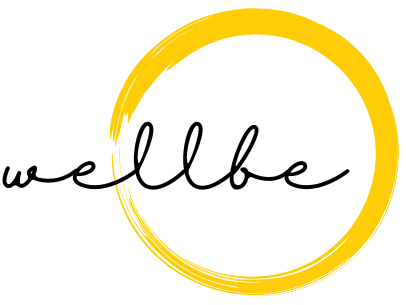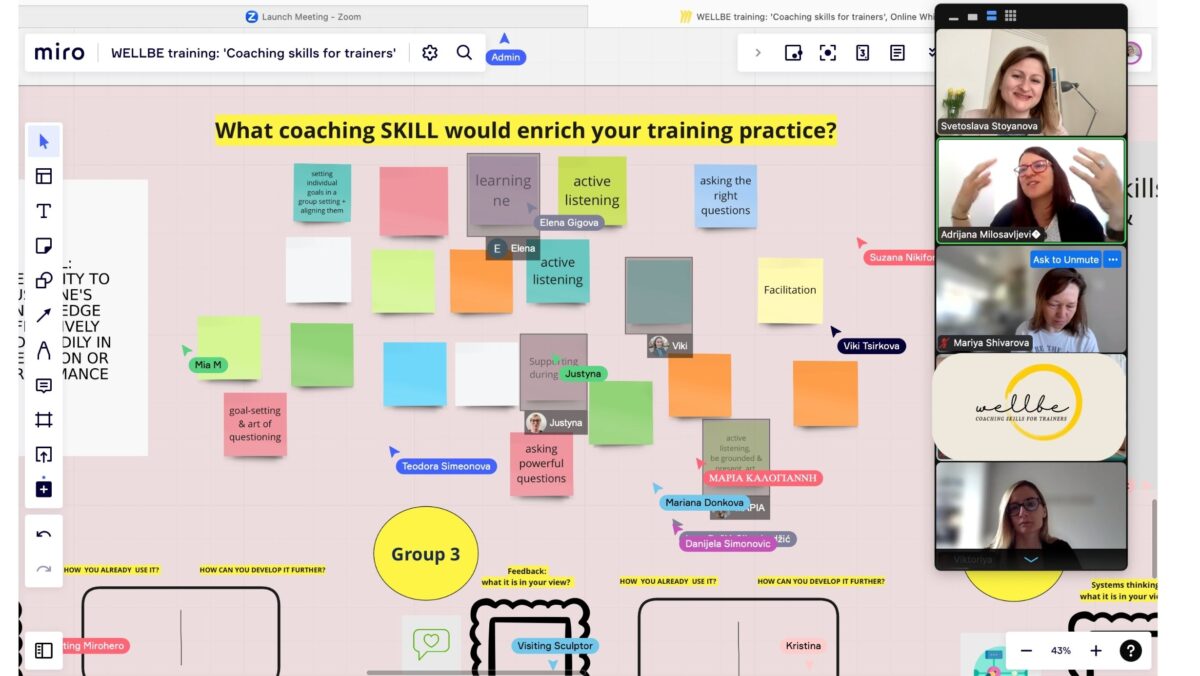Do you work as an adult educator in any field? Are you looking to create a valuable learning experience for your learners? Have you considered the coaching approach and how it can help you make a creative and impactful training agenda that leaves your audience inspired to seek more knowledge after the sessions? As an adult educator, do you also prioritize meeting your learners’ expectations, being there for them along their learning process, and at the same time, taking care of your own well-being?
If your answers to these questions are positive, we believe our WellBe training program can provide you with important content.
During the last weekend, our team of trainers welcomed a group of around 27 adult educators from 10 different countries to explore the meaning of coaching and dive deeper into the principles and skills outlined in our WellBe handbook.
On Saturday, through exercises and discussions, we explored the importance of a systemic perspective, understanding our stakeholders, and considering their expectations when planning our activities. We also delved into goal setting and measures of success, the definition of coaching, and the four coaching principles presented by the WellBe team: partnering, inclusion, growth mindset, and agility.
From Day 1, the group’s key messages and takeaways:
- A coach’s standpoint should be “never know first, never know better” when giving feedback.
- Coaching is like a tango – we dance together through the process.
- We are constantly co-partnering when we decide on goals and agendas.
- We attend this training to put our intuitive activities in some kind of framework.
During the session on Sunday, we explored the coaching skills that the WellBe team believes are the most valuable for adult educators:
- Self-reflection
- Goal setting
- Presencing
- Active listening
- Feedback
- Art of questioning
- Systems thinking
- Creativity
In the coaching spirit, participants were encouraged to reflect on the skills they already have developed and share examples, as well as identify areas for improvement.
Key takeaways from Day 2:
- The importance of being willing to reflect and learn about our blind spots
- How our feedback is about sharing our observations without being attached to them
- Being open to different perspectives
- Being stubborn regarding our goals but flexible about methods
The highlight of the weekend and a key message fully aligned with our coaching approach was: “Keep it human.”
Looking forward to harvesting learnings after our second training weekend! 😊

